Alumni Name: Rachel Lim
Pronouns: She/her/hers
Dates Served: January 2020 – September 2020
What roles was Rachel in: Crew MemberLocation: ACE Pacific West South/North
Rachel Lim, corpsmember from January to September 2020, now steps into the new volunteer role of ACE Alumni Ambassador. In this interview, we introduce our readers to Rachel and give a glimpse into her time during and after ACE. Rachel shares her studies at Purdue University, her experiences with friends made through ACE, and what inspires her in the role as Alumni Ambassador.
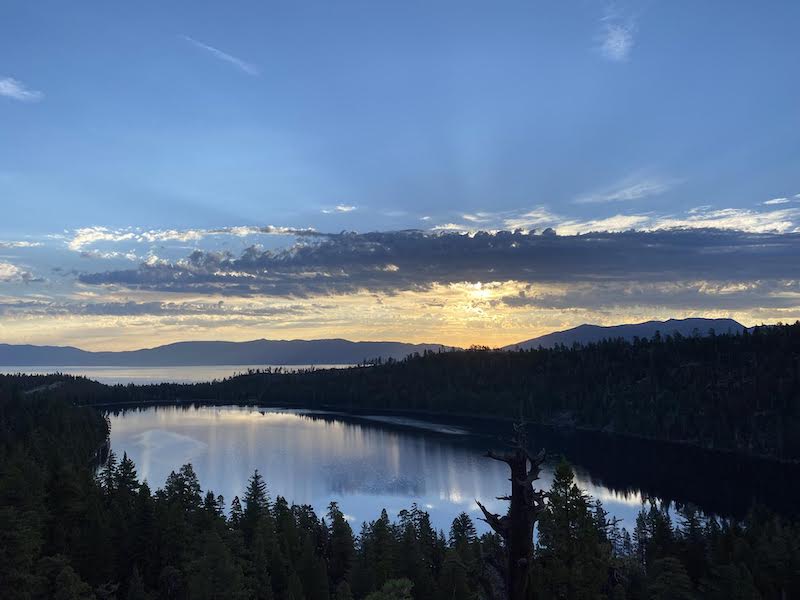
Q: What were you doing before ACE?
A: I graduated from Purdue University with a bachelor’s in biological science with an emphasis on ecology, evolutionary, and environmental biology. While doing my undergrad, I was working in a lab looking at the effects of environmental contaminants on the development and metamorphosis of amphibians. After college, I got an internship with the USGS surveying amphibians on a National Wildlife Refuge in Indiana. After that, I wanted to step back from research and gain more experience of the management and direct conservation side of the field. Which is why I applied to be in ACE.
Q: How did you hear about ACE?
A: I found the application for ACE Pacific West through a job board on Texas A&M. Initially the position appealed to me because it presented an opportunity to move closer to where I was from. I wanted to learn more about California ecosystems, something I wasn’t able to do in college because I had gone to a university in the Midwest.
Q: Walk me through your time at ACE – What was your favorite aspect of being an ACE Crew member?
A: My favorite aspect of being an ACE crew member was the tight-knit community and close friendships I developed over the course of my term. I have no doubt that I will be friends with some of the people I met for the rest of my life and I look back fondly on all of our dumb inside jokes and insane antics during hitch. A person I consider one of my closest friends was one of my crew leaders in Dulzura (PWS). He helped me through the transition to South Lake Tahoe (PWN) and encouraged me to pursue the career I was passionate about. I would never have had the confidence to make the move and push to be on a chainsaw crew on my own without him being there to support and encourage me every step of the way.
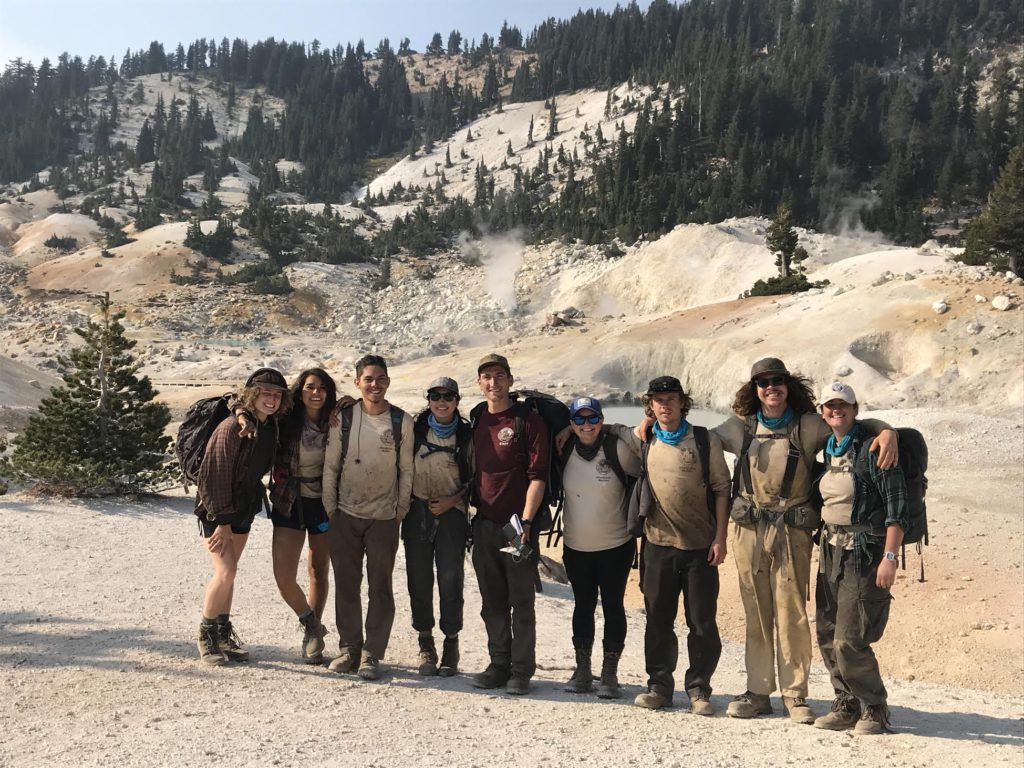
Q: What was it like living in PW ACE CREW Locations? Any favorite activities? Hikes? What did you do on your off days?
A: When I first started my ACE term, I wasn’t living in the PWS crew location permanently like many of my other crew members. I took that position specifically because it was close to my hometown and I wanted to be able to spend time with my family after being gone throughout my undergrad. However, I did live on property during my PWN term. Living in South Lake Tahoe was a dream come true. The prospect of being able to wake up and do a different hike every day was something I looked forward to whenever we came back from hitch. One of my favorite things to do was go down to the dog beach with a group of friends. It was a great place to just chill out and toss a frisbee or catch up on what happened during hitch while everyone was on different projects. There were so many places I wish I had checked out before I left and I miss the endless pristine nature that surrounded that housing location.
Q: Did you have a favorite project? Why?
A: I was only on two projects during my term at ACE: building an ADA-compliant trail at Point Dume State Preserve in Malibu, CA and being on a chainsaw crew doing forest thinning in preparation for a prescribed burn in Lassen Volcanic National Park, CA. I honestly can’t choose a favorite project of the two. The Point Dume Project was extremely rewarding because we were able to repair and improve on an existing trail while giving back to the community. My favorite memory from that project was walking along one of our finished trails to an overlook we built and meeting the man who had almost single-handedly brought the Giant Coreopsis (Leptosyne gigantea) back to the area. He hadn’t been able to see them bloom in person since he was wheelchair-bound, but because of our trail, he was able to see them for the first time in years. It was an amazing experience.
However, our work in Lassen Volcanic NP was rewarding in its own way. I was able to learn first hand about forest management and fire ecology, an area of study that I’m very interested in. The work we were doing there directly fed into my research goals for the future, and being able to gain that experience and develop my ideas further made the project even more special to me. I was also able to connect with and talk to so many people in the world of wildland fire. Being a wildland firefighter was a career path I admired from afar for many years, and being able to dip my toes into that world and be able to actually consider this career path was something I will always appreciate about this project.
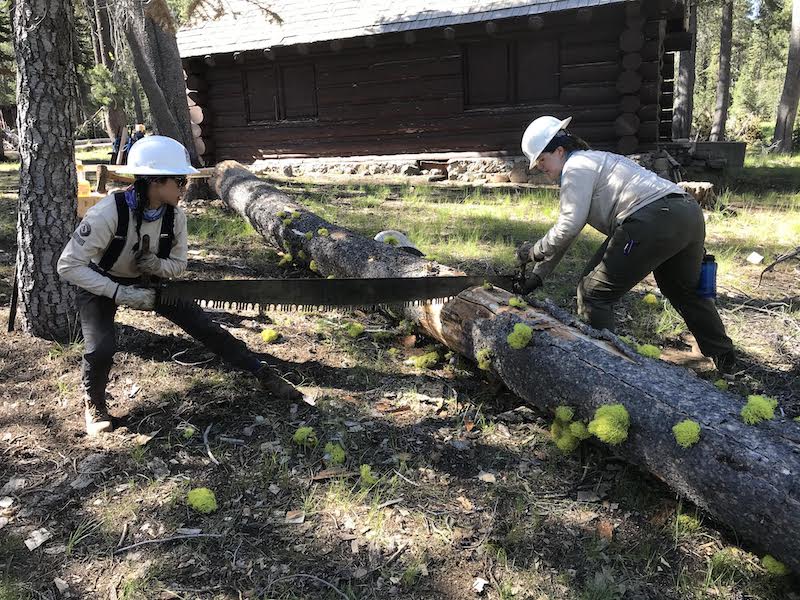
Q: What was the culture of your ACE division? How do you feel you participated in that culture?
A: The culture of my crew was one of the most encouraging and wholesome environments I had ever been in. I always looked forward to going on hitch because I knew that even though the work would be hard, spending time with people I loved would be the best reward. We worked really hard to uplift each other and hold each other to a good work ethic. We developed the weirdest inside jokes over the course of the season, and whenever I call one of my friends to catch up, they remind me of a joke that I had forgotten. My crew leaders were some of the most passionate and hard working people I’d ever met. I could always count on them to be the first ones up in the morning and one of the last to go to bed at night. Their tireless work ethic and leadership skills have taught me how to be a better worker and leader.
Q: In what ways did ACE shape your life personally and professionally?
A: ACE has given me the opportunity and tools to pursue a career that I had no idea how to get into in the first place. I’ve been tangentially interested in being a wildland firefighter since I was in high school, but I had written it off as being too difficult and complicated. Through ACE, I was taught the basic skills necessary to qualify for training camps for wildland fire. I better understand the challenges that I might possibly face in the field, and am confident that I have the work ethic and determination to persevere. Without the confidence I gained from my experience with ACE, I would never have believed in myself enough to even start down the path I’m traveling down now.
ACE has also made me a more confident outdoors-person. It is really hard to not be comfortable in the wilderness after camping for eight days straight, even if there are amenities available. I became really comfortable being sweaty and disgusting because at the end of the day, everyone is sweaty and disgusting together. It made me really appreciate the shower at the end of the work week.
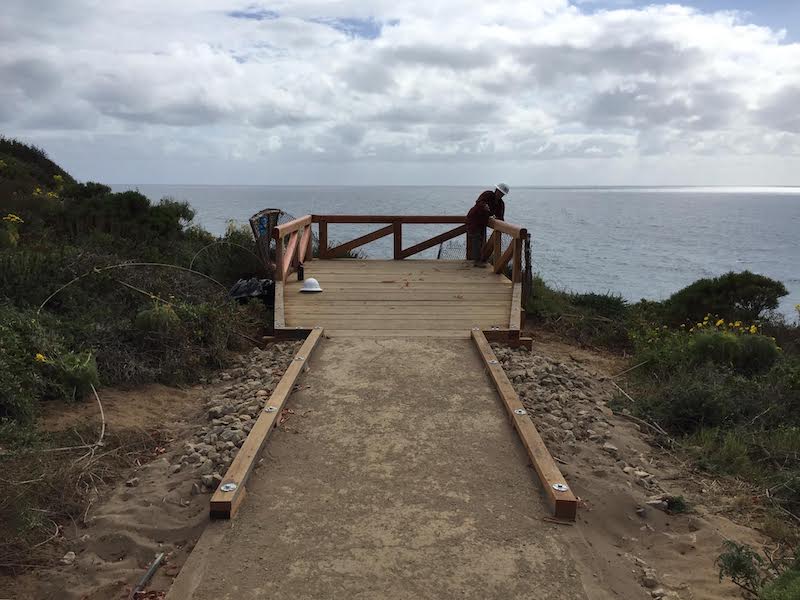
Q: How long have you been an ACE Alumni? Where are you now?
I have been an ACE Alumni for three months. In February, I will be starting a wildland fire position with the National Park Service at Indiana Dunes National Park. In the future, I would like to go back to school to study fire ecology and how changing burn regimes affect local animal communities.
Q: What are some of your favorite extracurricular activities?
A: In terms of activities outdoors, I really enjoy hiking and rock climbing. Living in South Lake Tahoe gave me the opportunity to check out some of the most amazing places, which was something I tried to make the most of. I also enjoy playing board games, especially cooperative ones. My favorite right now is Pandemic, which is both extremely topical and loads of fun. Recently, I have picked up embroidery as a side hobby. I have really enjoyed turning beautiful places that I’ve been to into polaroid-like images.
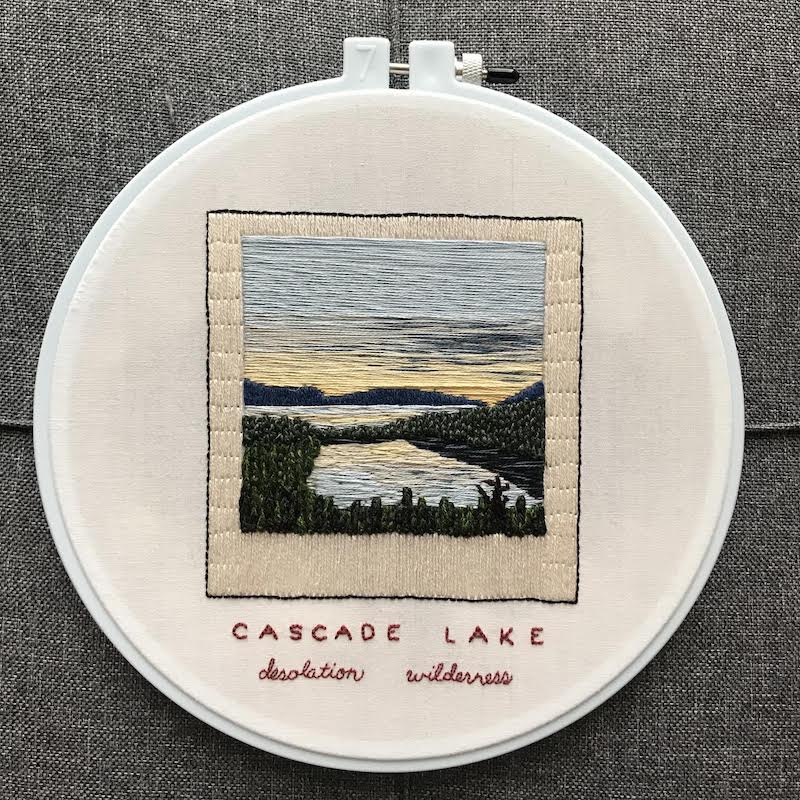
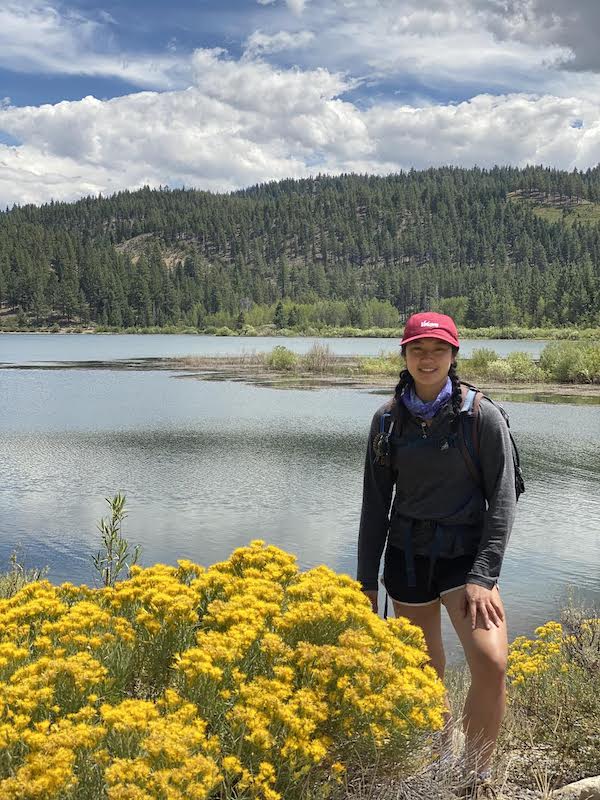
Q: What excites you most about becoming an ACE Alumni Ambassador?
A: As an ACE Alumni Ambassador, I would like to bring more awareness to people of color within the field. I think there isn’t enough representation of BIPOC in the field of conservation at large, be it the research or the management side. I want to provide a safe space for BIPOC to talk about their experiences and the things that are important to them. The world and the way we as a society perceive our differences is changing, but breaking into a field historically dominated by a single group can be a daunting prospect. Showing people, especially young students, that the field of conservation is a viable career option with a successful future is really important to me.
Q: If a prospective ACE member were to ask you what the benefits of joining ACE are, what would you say?
A: One of the greatest benefits of ACE is being able to understand and participate in the behind-the-scenes work necessary to maintain and preserve public lands. Not every project is glamorous, but they are all extremely important, and ACE lets you peer behind the curtain and experience it. ACE places an emphasis on networking with project partners and this is a wonderful opportunity to ask them questions about the field and what their jobs entail. I was given so many chances to prove myself to people I wanted to work for in the future, and these kinds of opportunities are invaluable in the world of conservation. Being able to sell yourself through the experience and skill you gained at ACE puts you at an advantage while applying to similar jobs, both nonprofit and government. Another major benefit of ACE is the friendships and relationships you develop over the course of your term. Through ACE, I now have friends all over the country doing amazing things in their respective fields. At the end of the day, it was those bonds that really pushed me to work harder and do better, and I’ll never stop being grateful to all the people I met during my term.
